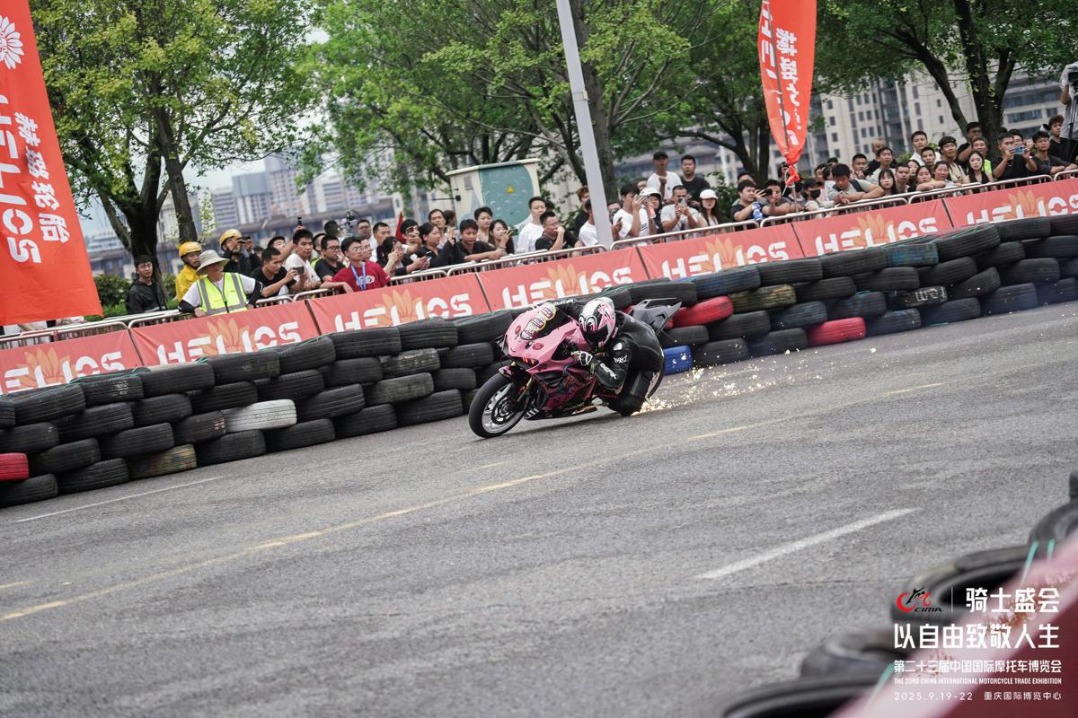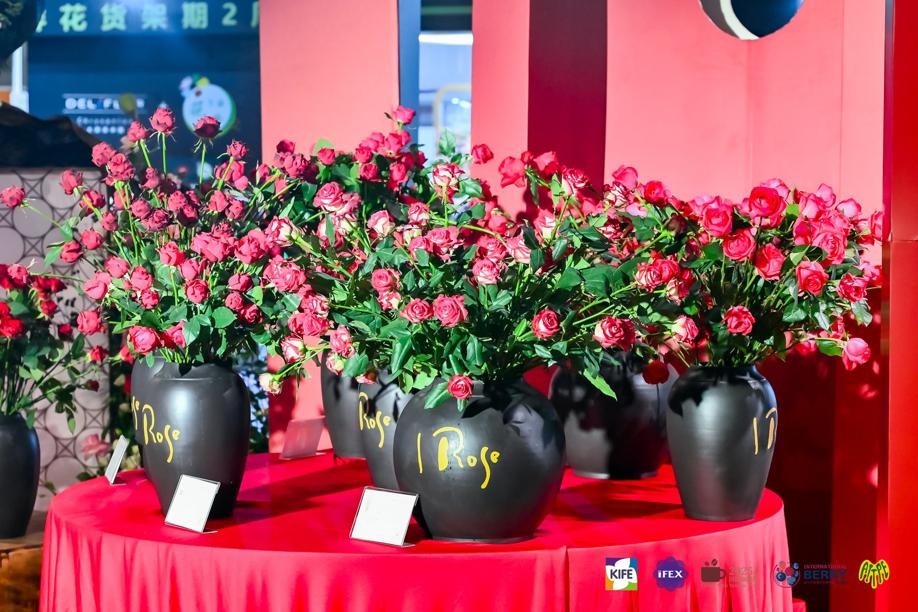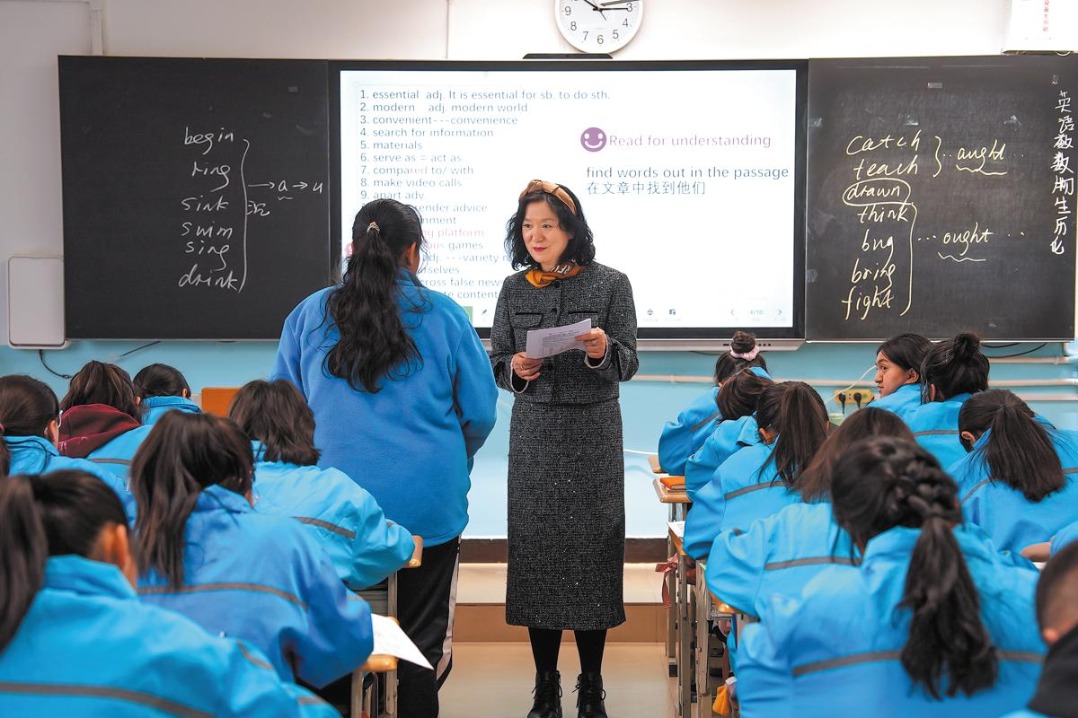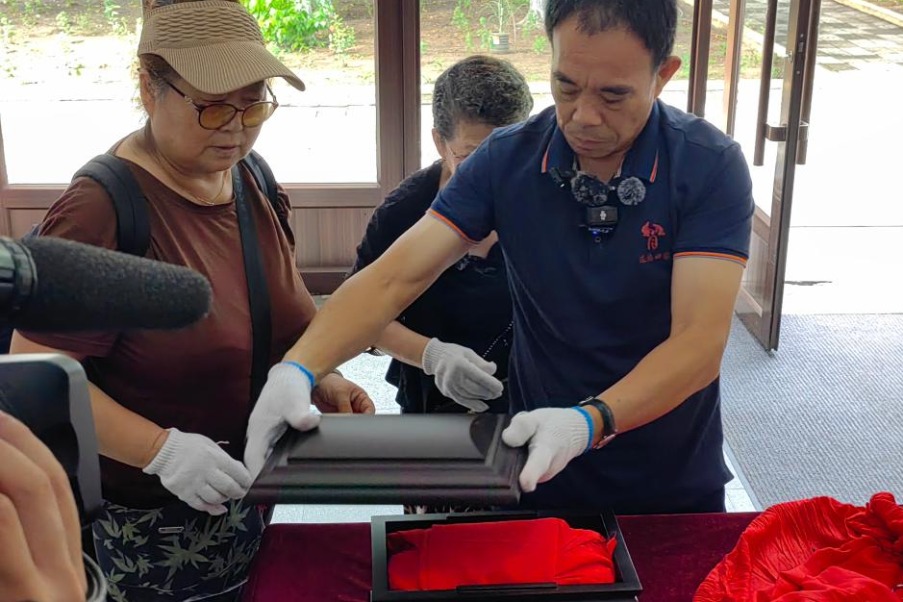Conference showcases China's advances in BCI technology

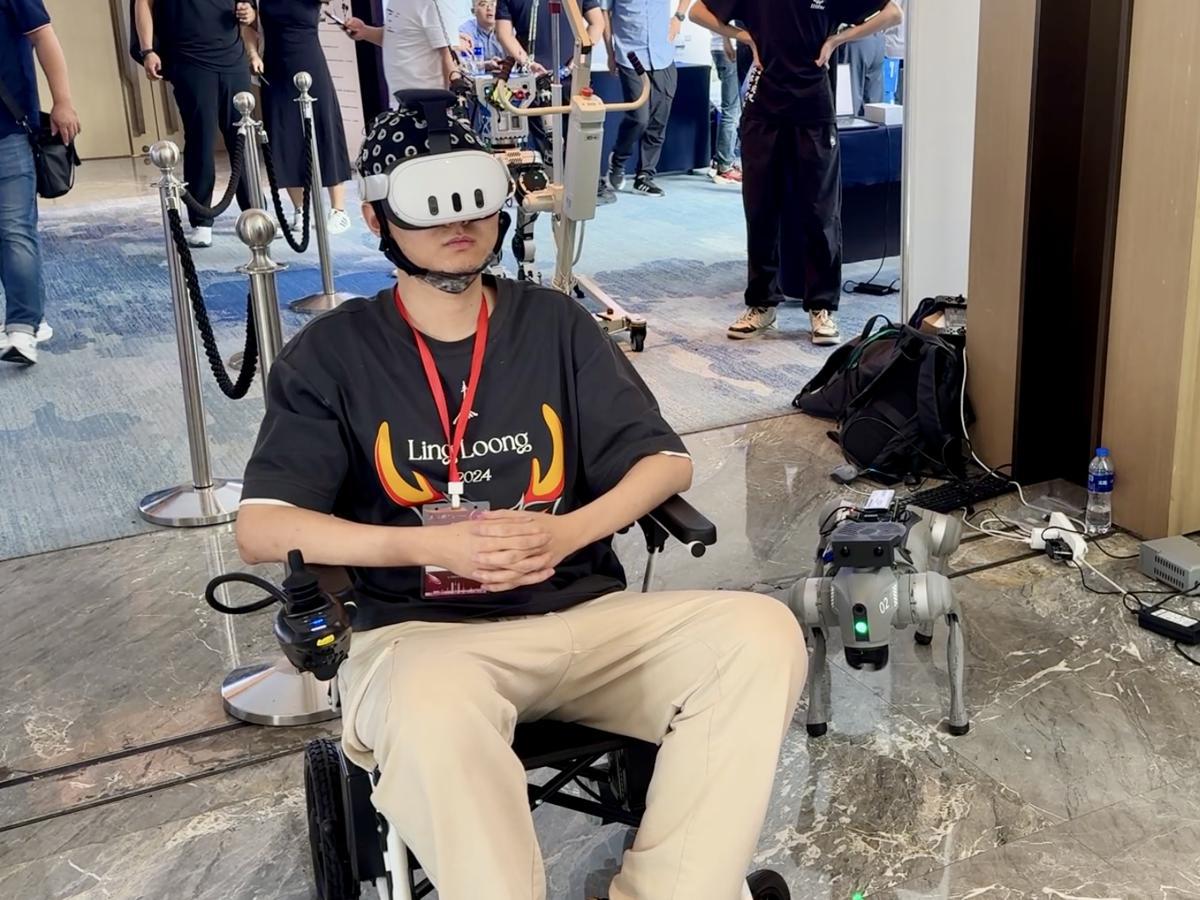
Leading researchers, medical professionals, and industry experts gathered in Shanghai on Friday for the fourth smart healthcare and rehabilitation conference and the seventh brain-computer interface (BCI) meeting, showcasing the latest advancements in BCI technology.
The two-day event aimed to promote cross-disciplinary exchange and accelerate the development of BCI technology, highlighting innovations in human-machine interaction and medical rehabilitation.
A highlight of the event was a project from East China University of Science and Technology that integrates BCI technology with virtual reality, creating an immersive human-machine interaction system. The system enables users with mobility limitations to control devices using only their brain signals.
"Our system comprises three main components: BCI equipment, controllable devices such as wheelchairs or robots, and VR glasses," said Huang Yitao, a graduate student involved in the project.
The robot configured in the current system comes from Robo Party, a company known for its "low cost, high performance, and open-source sharing" philosophy. "The new form of brain-computer interaction integrates seamlessly into robot control, enabling a more intuitive and immersive experience for users through cameras mounted on the robots," Huang added.
"When you transfer your perception to the robot through BCI technology, the robot becomes a 'living carrier'," Jin Jing, professor from the university and leader of the project, elaborated on the technology's features. "It's like a realistic version of Avatar, while it's more about creating a new paradigm of human-machine interaction where the user's consciousness extends beyond their physical body while maintaining self-awareness."
The technology represents an advancement over previous generations by offering real-time 3D scene rendering and more immersive user experiences, showing promise for elderly care and mobility-impaired individuals.
"This technology can help overcome spatial barriers for people with physical or geographical limitations, enabling them to interact and engage in activities across different regions," Jin added. "While current perception is primarily visual, future generations will incorporate hearing, touch, and other senses."
In the medical rehabilitation sector, Shanghai-based Arfysica Innovation has developed a noninvasive neural rehabilitation system now deployed in multiple top-tier hospitals across China. The company, founded in 2016, helped create China's first BCI ward at Beijing Tiantan Hospital.
"We focus on patients with central nervous system injuries from conditions such as stroke, brain trauma and brain tumors, aiming to restore normal motor control through neural network rebuilding," said Jin Hui, the company's vice president. Their system features a wireless 16-channel EEG cap with active dry electrodes, eliminating the need for conductive gel for improved patient comfort.
The impact of this technology on patient recovery is substantial. "After six weeks of daily 25-to-50-minute training sessions, patients demonstrate significant motor function improvement," Jin said, noting that the system's algorithm can achieve over 95 percent decoding accuracy, and improve recovery efficiency by 30-50 percent.
Neuracle, another player in the field, demonstrated its advanced BCI multimodal acquisition system at the conference. "Our equipment can collect not just brain signals but also various physiological signals like electromyography and blood oxygen levels," said Shi Huihuang from their research and marketing department. The system can simultaneously track up to 10 subjects, benefiting research in areas from traffic safety to neuroaesthetic analysis.
She also noted emerging applications beyond medical rehabilitation. "We're seeing potential applications in construction safety," Shi noted. "For instance, we can study how workers focus during high-risk activities like operating heavy machinery or working at heights, helping optimize safety protocols."
Zakir Ullah, a Pakistani PhD student at Shanghai Jiao Tong University interning at a local BCI company, expressed enthusiasm for the field's practical impact. "What excites me most is seeing how BCI devices directly help people regain motor control and lead better lives," he said. "Seeing patients' hope and excitement when using these devices gives me tremendous encouragement."
Attracted by China's results-focused work environment and strong government support for innovation, Ullah plans to work in China after graduation. "The work environment here is welcoming, and both government policies and local authorities maintain a strong focus on achieving concrete results."
- Conference showcases China's advances in BCI technology
- Shanghai marks 1-year countdown to 48th WorldSkills contest
- Officials rule out foul play in Xishui food-poisoning incident
- China drives low-carbon transportation growth in 5 years
- Aerial photos show golden rice harvest in Guizhou
- Tianjin music festival draws 30,000 fans over weekend


















